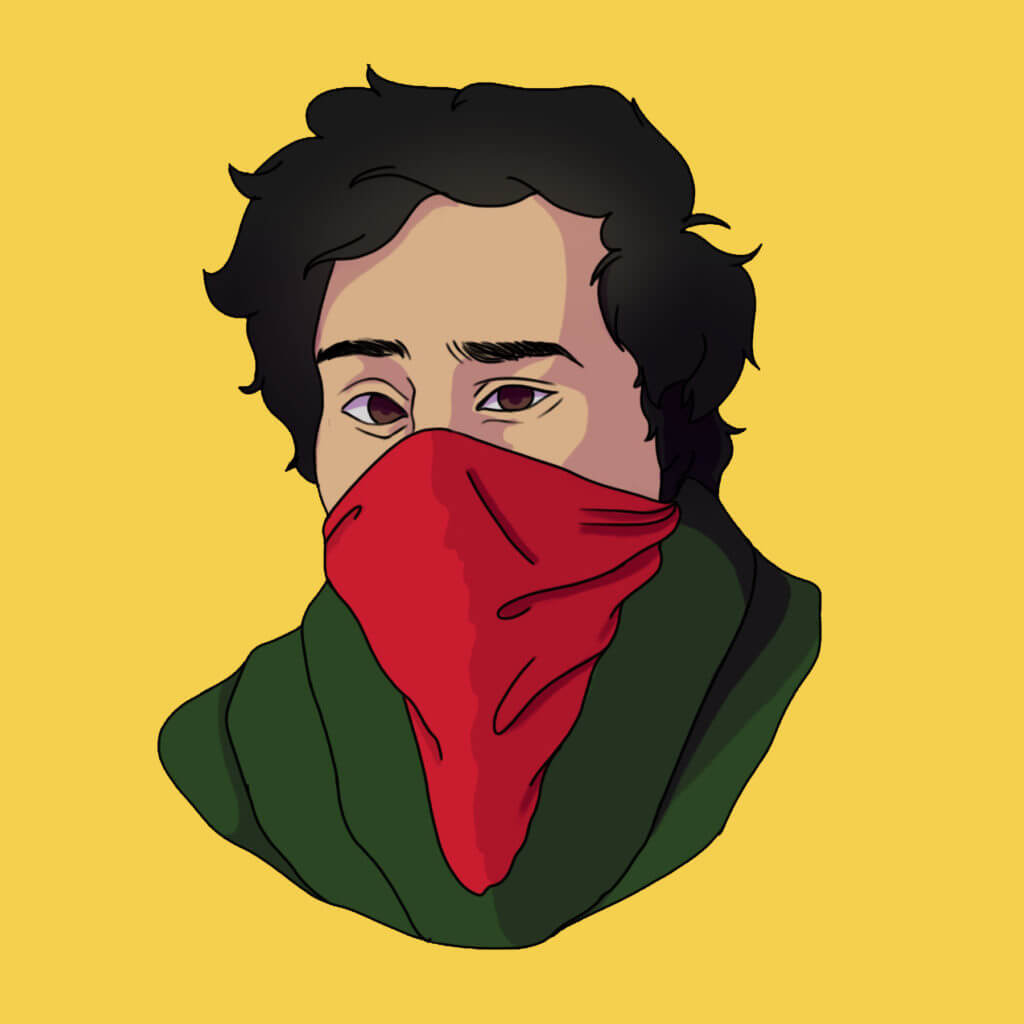Admission Blog
Part 1
Note: I wrote this in the middle of May as a regular journal entry, about not being able to visit Bob, but then I stopped. I realized I had more to say, but I wasn’t quite sure what. Nearly a month later, I’ve returned to it, and I’m publishing it as few entries.
I miss Bob. He’s my best friend in Yellow Springs, and I miss him.
Toward the middle of April, I stopped by his house and spent an hour or so sitting in his living room, talking with him. Though I’d come at his invitation—and though there was nothing, strictly speaking, wrong about what I was doing—I still felt strange. I knocked on his door with the slinky discretion of an adulterer and, once inside, carried myself with a kind mortified heedfulness I’d thought unique to tall guys on airplanes. I was worried I’d kill him. We kept six feet between us at all times, and I’d prepped for my visit by scrubbing my arms in hand sanitizer like a TV surgeon, but I was still worried I’d kill him. And this fear was so fresh in my mind that, when he invited me over today, I told him I couldn’t make it.
“Doctor’s appointment,” I said.
“Ah,” Bob said, in a tone that suggested I’d just revealed some irreducible truth about the universe only he and I were equipped to understand.
“I’m sorry,” I said.
“Not at all!” he said.
I miss him.
He’s old, is the thing. Like, somewhere in his eighties. Seen in the light of this fact, my reticence begins to make a little more sense. What’s more, he isn’t just my best friend in the Village: He’s also the proud owner of one of the most acute, capacious, deft minds I’ve ever encountered. And is someone whose opinion I value. And whose work I respect. And who, in a sense, is the reason I came to Antioch in the first place. He needs to live to see me graduate. I’d like him to live long after that, too, of course; but he just—he needs to see me graduate. I’m not going to take any chances.
So, that’s why I’m not at Bob’s today, despite missing him very much. And that’s why I’m going to do the next-best thing to spending time with him: I’m going to tell you about him.
…
I was eleven when I informed my school’s librarian that I was to be a writer. I was in 5th grade, and I’d known her since 1st grade. I felt it was time she knew.
I was to be a writer—that’s what I said. Not, “I want to be a writer when I grow up;” not, “I have started writing a novel.” No: I said I was to be a writer, because that’s just how it felt. This was no aspiration. This was no choice. It was an immutable feature of my very being.
Given her response, I think Mrs. Ross understood this. She nodded solemnly and said she was glad I’d told her. I said I was glad, too. She also told me to check back in with her in a week: She’d have some things for me to read by then.
A week later, Mrs. Ross handed me a stack of literary journals. The Antioch Review was among them. It was, in retrospect, a risk for her: I’m 29 now, and even now, and some fiction submissions the Review receives still make me blush. Conceivably, Mrs. Ross could have found my parents standing in her office, asking just where exactly their son, the (eleven year-old) writer, learned the word ‘fellatio,’ and why he kept describing scenes depicting it as “reminiscent of Henry Miller’s minor work.” She didn’t, though. A couple years earlier, an incident in which I was caught reading a mildewed copy of Lady Chatterly’s Lover prompted my parents to have a discussion about how much control they should exert over my reading. That their ultimate decision was, “not much,” is something for which I remain grateful to this day. As is Mrs. Ross’ decision to order my school a subscriptions to The Paris Review, Granta, and The Antioch Review.
Throughout my adolescence, the journals were like friends and mentors to me, each with their own distinct personality. Granta was hip and modish—its editorial voice weary, sardonic, and impatient. If it were an actual voice, it’d have sounded like Joe Strummer’s, I thought. The Paris Review was glamorous, patrician, and worldly—the voice of a rarefied sphere in which I couldn’t quite imagine existing, but in which I knew I’d wear an exquisitely cut suit if I ever did.
And then there was The Antioch Review. Its offices were just 60 miles away from my house—it said so right on the masthead: Yellow Springs, Ohio. I’d been there before! It didn’t seem like I was near a portal to—well, to all of it: to a world of ideas, dedication to the craft, to the alchemical process of creation. Yet, looking at the magazine’s name on its cover—at the elegant, subdued-yet-confident serif font—The Antioch Review’s position as an authority in the field seemed indisputable. And that was before actually opening the thing. In the Review, I first encountered the work of writers I’d come to love: Jaime Quatro, Bruce Jay Friedman, Cynthia Ozick, Mark Strand. For some reason, I imagined them all at the Review’s offices, in some austere and drafty academic building, sitting around a large table, writing quietly. I imagined them all as being just 60 miles away. Which, to me, seemed frankly remarkable. They were all right there.

About Ben Z. ’20
Ben is a member of the class of 2020.
He’s studying literature.
He enjoys a good club sandwich, and once got a chicken elected to Comcil.
Storytelling
Choose Your Character
Safe, On Campus
Entering the final weeks of fall quarter, no Covid-19 cases on campus
Antioch College Admission
Discover




0 Comments